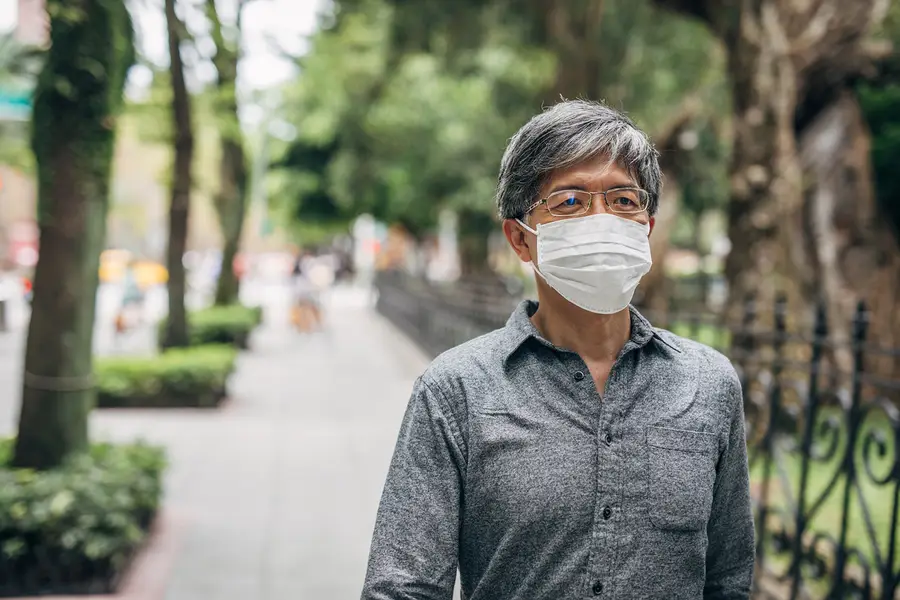
In the international development community, noncommunicable diseases (NCDs) have generally been viewed as a separate, and sometimes competing concern from infectious diseases. The current COVID-19 pandemic, however, has placed a spotlight on the little-considered nexus between these different types of conditions and challenged governments and the public health community to consider how infectious and chronic diseases intersect and interact. We must consider addressing noncommunicable diseases as an essential strategy that can help mitigate the impacts of COVID-19 and strengthen and build resilience against future pandemics.
How do NCDs and COVID-19 intersect?
Evidence from a range of countries indicates that COVID-19 has a greater impact upon people with underlying chronic conditions like cardiovascular disease, diabetes, cancer, and lung disease, all of which are NCDs. People who have NCDs are more likely to become seriously ill, be hospitalized, require ICU admission, and sadly, die as a result of COVID-19. We have seen this unfold in different country contexts around the world. Some of this is no doubt due to age, as most NCDs occur in middle- or older-age groups; however, the extra COVID-19 risk posed by co-morbid NCDs and some of their most prominent causes occurs across the age range.
Smoking and obesity are associated with COVID-19
The COVID-19 patient data available so far indicate that two of the most prevalent NCD risk factors, smoking and being overweight or obese, are independently associated with a substantially increased risk for becoming seriously ill with COVID-19. People who are obese have been found to be at significantly greater risk of becoming severely ill as a result of COVID-19, with a greater proportion of people who have overweight/obesity requiring critical care. Unlike the general COVID-19 risk profile, the data alarmingly shows that younger and middle-aged people with obesity/overweight are at greater risk of serious COVID-19 illness and complications than people of the same age with a lower BMI. Smokers may also be more vulnerable to contracting the SARS-CoV-2 virus because the act of smoking increases the possibility of transmission of virus from hand to mouth. Early data suggests that smokers may be more likely to have serious illness as a result of COVID-19 and to die than non-smokers.
NCDs also affect huge proportions of the global population. Between 1990-2017, it is estimated that 1.4 billion years of healthy life were lost due to premature deaths and disabilities related to NCDs. NCDs affect people in both high-income countries and low- and middle-income countries (LMIC), although 80% of NCD deaths occur in LMIC. Globally, more than a billion people over the age of 15 smoke, and around 2 billion adults aged 18 years and older are overweight, including 14 percent who are obese. People with NCDs or one of the major risk factors therefore constitute a very large part of the global population that is particularly vulnerable to pandemic diseases like COVID-19, which magnifies the potential for severe health and economic impacts around the world.
COVID-19 has put a spotlight on the intersection of NCDs and pandemic infectious disease response, and there is an urgent need for the global community to develop a collaborative agenda for action to mitigate current impacts of COVID-19 and strengthen resilience against future pandemics.
Responding to NCD vulnerability during COVID-19
To address the pandemic, it is critical for governments, health services, and the NCD community to adapt policies and provide information and guidance for people with NCDs and major risk factors that help them self-manage their conditions and reduce their risk of acquiring COVID-19. This includes providing remote or virtual access to smoking cessation support and products, access to weight management support and guidance services, and strategies enabling people with chronic conditions to continue to be physically active and have access to healthier food and drink products while shielding themselves from risk of COVID-19 infection. Disruption to supply chains is already undermining access to essential medicines to treat and manage NCDs. Non-availability of NCD medicines increases the risk of severe exacerbations of chronic conditions, such as poorly managed hypertension or non-availability of insulin and other diabetes medication, as well as the risk of severe complications from COVID-19. For self-management to be possible, we must strengthen supply chains to ensure that medicines reach populations in need, and harness and broaden access to technologies that enable remote access to health monitoring and advice.
We must also work to ensure safe access to NCD treatment and communicate infection control measures that enhance the public’s confidence in seeking help during the pandemic. There is early evidence that people are not seeking help for serious NCD-related health problems due to fear of COVID-19 infection. Studies in several countries have indicated a decline of approximately 40 percent in emergency cardiology admissions. During the same time period, U.S. Gallup reported that 86 percent of people with heart disease said they would be very or moderately concerned if they needed immediate treatment. Cancer treatment and diagnosis has been halted in many countries due to staff shortages and attempts to shield vulnerable patients from COVID-19 exposure, causing serious concern about the adverse impact on cancer outcomes.
There are many opportunities for the global NCD community to contribute to COVID-19 response efforts using implementation science. These include:
- Assessing the health and economic consequences that COVID-19 has on people living with NCDs and major risk factors. RTI works with the UN Development Program and WHO to help countries implement tobacco control and NCD prevention and treatment. We are currently developing evidence that demonstrates the added protective effects against COVID from those actions;
- Assessing the impacts on the supply chain for essential NCD medicines and particularly the cost and affordability implications of disrupted supply chains. RTI plays a leading role in the Coalition for Access to NCD Medicines and Products, which is redoubling its efforts during COVID-19 to improve access to essential medicines in East Africa;
- Identifying effective ways to communicate with and continue treatment and support services for people with NCDs and risk factors; and
- Identifying and testing feasible adaptations to systems, community resources, and spaces to support self-management for people with NCDs during pandemic circumstances.
How to build and strengthen resilience against future pandemics
In the aftermath of COVID-19, governments and multi-lateral agencies will be seeking ways to strengthen resilience against future infectious disease outbreaks. Action to reduce noncommunicable diseases is a crucial part of increasing global health security. We must ensure plans are in place to shield and support people with NCDs during a pandemic, including provisions for maintaining continuity of care, enabling self-management, and ensuring heath system capacity is not overwhelmed. Most critically, governments together with the global health community must re-double efforts to enact the evidence-based policies, programs, and system developments that will reduce the prevalence of NCDs. As argued in a 2019 lecture at University College London, we believe NCDs are a global emergency that needs a comprehensive and strong response, much like pandemics. By building healthier and more resilient communities we can reduce the proportion of the population that is especially vulnerable to future pandemic infectious disease.


